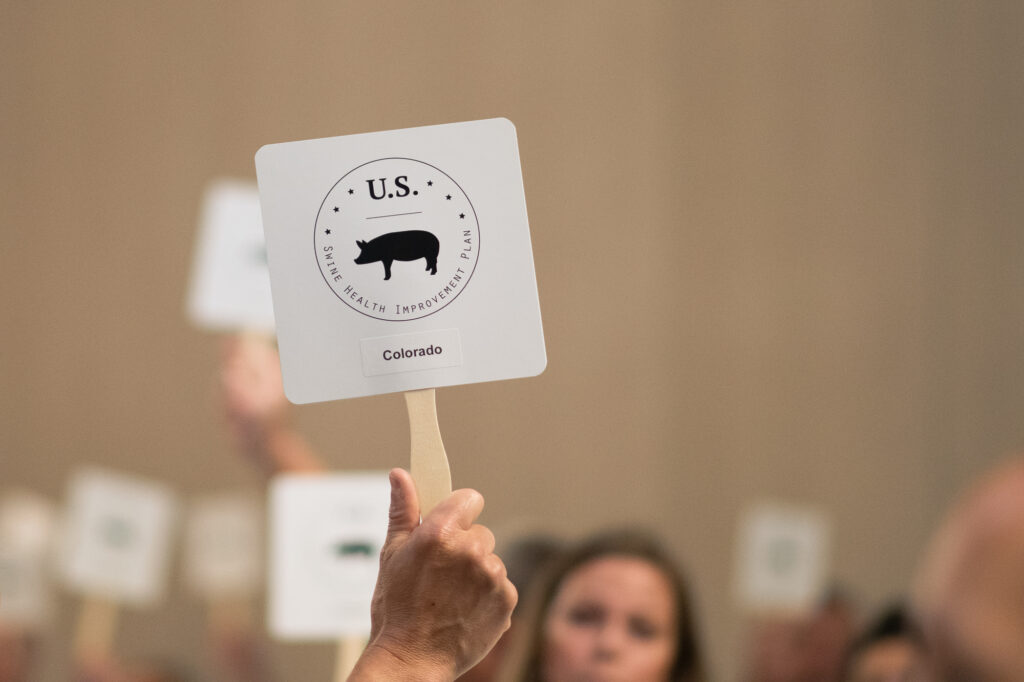
Establishing a US Swine Health Improvement Plan (US SHIP) presents as opportunity to create an officially recognized and proven platform for sustainably making stepwise progress in addressing animal health related issues of high consequence that extend beyond the immediate influence of an individual state, producer, or packer’s farm gate.
Specific aims of US SHIP include:
- Enhance all three aspects (prevention, response, & recovery) of trade impacting disease (TID) preparedness amongst participating producers, slaughter facilities, and states through proactively establishing an industry-informed and working system of operations and certification built upon well-defined program requirements for biosecurity, traceability, and disease surveillance.
- Reduce the impact of recurring endemic diseases of high consequence through the sustainable advancement of sanitary standards and practices that mitigate disease spread into and between farms.
- Provide US pork industry participants a first-hand experience in developing and participating in an “NPIP like” program customized to meet the needs of the US pork industry.
Creating such a body and working system to establish and maintain officially recognized health status certifications across herds, supply chains, processing plants, areas, states, and regions aims to provide a sustainable means of advancing traceability, sanitary standards, and disease surveillance across the US pork industry. Biosecurity, traceability, and disease surveillance are each critical elements to trade impacting disease (TID) preparedness and are the cornerstones of this US SHIP ASF-CSF Certification Program. Well-defined surveillance requirements are expected to be tiered and vary substantially based on farm-type and the ASF or CSF status of the US. While advancing practices that mitigate risks of disease introduction is a primary focus, proactively developing and implementing an industry-informed and functional system prior to a TID incursion would also enable participants and states to readily scale up the necessary testing to demonstrate freedom of disease across specified supply chains, regions, and market segments throughout a Recovery Phase. There is precedent for willing trading partners to recognize specific areas (regionalization) as being free of specified diseases within an affected country. Recognizing the health status of commercial livestock by region (counties, states, or provinces) has long been a critical component of making stepwise progress over the course of large-scale disease control or eradication efforts domestically and internationally.
The NPIP H5/H7 Avian Influenza Monitored certification held by meat-type chicken and turkey slaughter plants, commercial egg laying operations, and states, have played a primary role in helping sustain interstate commerce and access to export markets from unaffected regions during times of AIV outbreaks of significance affecting Commercial Poultry in the US.
It seems arguable that our animal health related systems and infrastructure that extend beyond the individual producer’s or packer’s farm gate have not kept pace with the needs of the highly mobile, interconnected, and export centric industry of today.
US SHIP serves to pilot a 21st century pathway forward among interested pork producers, packers, and states.
